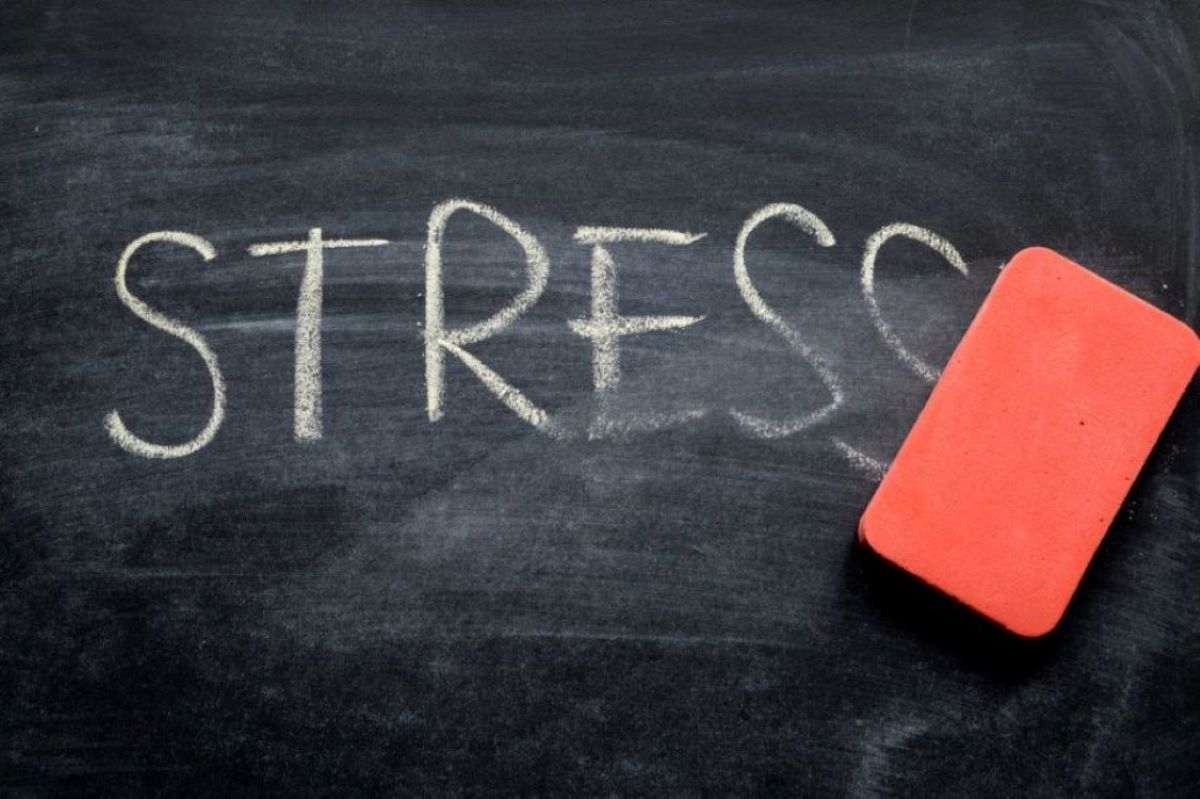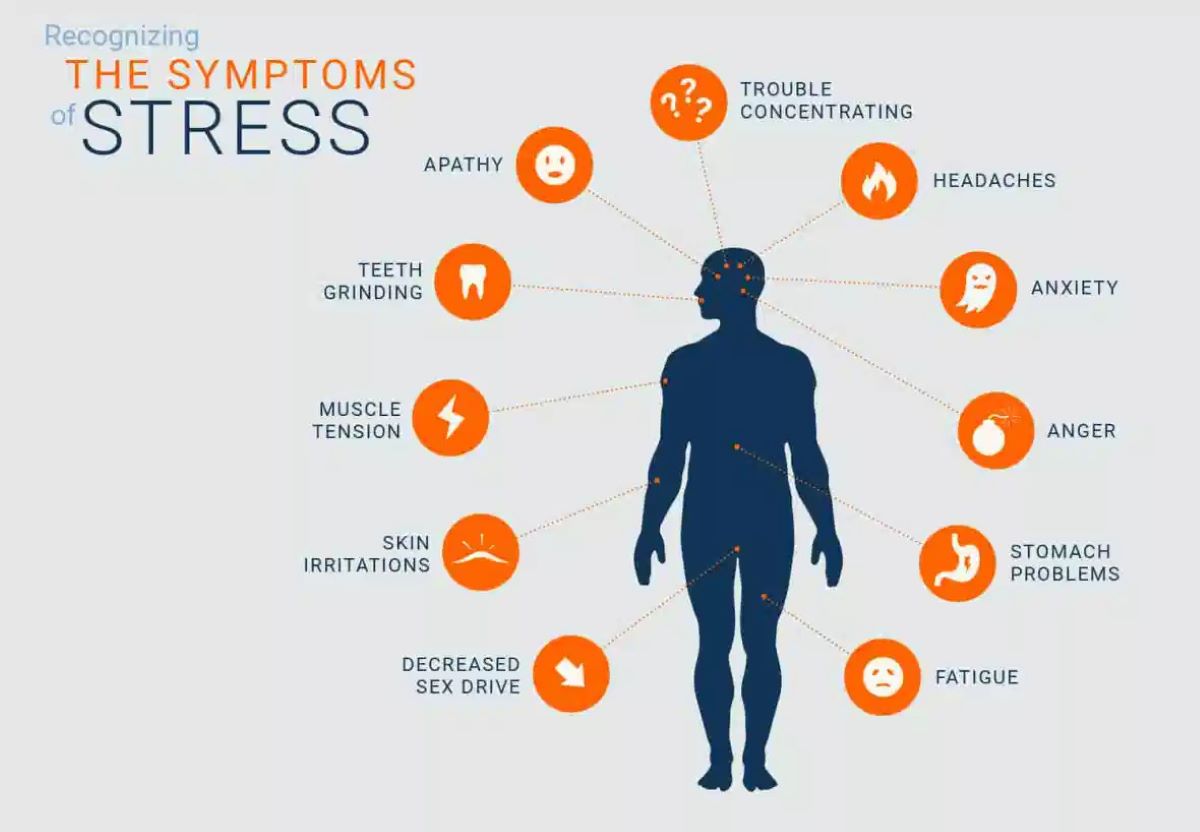Stress is your body’s way of responding to threats and demands. In a “dangerous” situation, your body reacts with its flight-or-flight response. Your senses sharpen as adrenaline gets your heart pumping faster and your muscles prepare for immediate action.
Stress can help you meet challenges, be it during a big presentation, a sporting event, or when you are preparing for an exam. It can keep you focused and productive. But only up to a certain point. Beyond that, it can damage your physical and mental health.
The signs and symptoms of chronic stress are subtle. It can sneak into your daily life, damaging your mood and making you feel lousy. Learning how to recognize these signs can help bring your nervous system back into balance and improve your mental and physical health. In this article, we will cover the causes and effects of stress and ways to handle it.
Causes of Stress

Stressors are all of life’s situations and pressures that cause stress. While stressors are often thought of as negative events, even positive ones can provide stress. Getting a job or beginning a relationship can be big stressors, even though they are positive events.
Stress is caused by a mixture of external and internal factors. Internal stress comes from how you approach situations and how you deal with external stress.
The nervous system often reacts the same to emotional and physical stressors. In today’s world, emotional threats are commonplace. This can lead to your body staying in a heightened state of stress a lot.
This level of stress is harmful, leading to or increasing current health problems.
External Stress
External factors are all around us. They can manifest in major life changes, like picking a university or applying for a job, or center around work or school. Work and school can get very stressful as assignments and deadlines pile up.
Almost every daily event is a stressor, but many of them are so small as to not overly affect your stress levels. Change, be it big or small, is a stressor.
Many fun daily activities are stressors. Stress is easily misconstrued as just a negative feeling. Eustress, or positive stress, is motivating and exciting. Positive external stressors are an important part of daily life, and they lead to achievement and success. Eustress is not bad for you, but it does impact your overall stress level. Its combination with distress, or negative stress, leads to chronic stress and its symptoms.
Internal Stress
In today’s world, it is almost impossible to escape from its stressors. With constant access to worldwide events and everyone’s connectedness to one another, finding an inner sense of security and safety is very challenging.
Everyone’s reaction to events is different. Where someone may bask in the spotlight, it might cause someone else loads of stress and leave them reeling for hours or days. A certain activity that you find dreadful might be a pleasant addition to someone else’s day.
Figuring out what stresses you out and why it is so stressful is a good step in combating chronic stress.
Chronic Stress Symptoms

One danger of chronic stress lies in its subtle symptoms. They arrive gradually, bleeding into your feeling of normalcy. It is hard to notice the symptoms that affect you even as they become severe.
Understanding the common warning signs and symptoms of overwhelming stress helps you see how they are affecting you and those around you.
How it Affects Your Body
Chronic stress can manifest itself with physical symptoms. It weakens your immune system, leaving you prone to colds or other common ailments. Other common symptoms include:
- Body aches and pains
- Nausea or dizziness
- Increased heart rate
- Change in appetite
How it Affects Your Mind
As stress continues, it starts a negative feedback loop with the symptoms leading to more stress. It can affect your ability to concentrate and make judgments, leading to decreased productivity and indecision.
It also drives you to a pessimistic mindset, leading to a constant state of worry and anxious, disruptive thoughts.
Overwhelming stress can affect your behaviors, leading to drastic changes in your diet and sleep schedule, as well as procrastinating and neglecting responsibilities.
These symptoms drive increased internal and external stress.
How it Affects Your Mood
Stress also affects your mood. Feelings of depression and irritability are two common symptoms of chronic stress. It also leads to feeling overwhelmed and anxious or lonely.
These symptoms combine differently for everyone. Chronic stress might affect your mood but not your mind, or vice versa. Understanding these symptoms helps figure out when and to what degree they are affecting you.
Dealing with Stress

Understanding chronic stress, its causes, and its symptoms are all important steps in dealing with it. Dealing with stress is hard. Every part of the stress process is challenging.
But it is not impossible. There are several ways to deal with stress, both while it happens as well as after the fact.
Fighting Stress While it Happens
Your reaction to stressors has a big impact on how they affect you in the short and long term. Staying calm in the face of stress and figuring out how to handle it are good ways to combat stress. Something as simple as breathing deep can stave off some feelings of anxiety and panic that comes with stress.
Stressors can be overwhelming. Writing a list of how to deal with it is a great tactic to manage stress. Seeing the steps to finish an assignment or apply for a job or complete a project is a great way to assert a level of control over a stressor.
After the Fact
Fighting stress is a constant battle. It is common to feel stressed about either past or future events. Taking time to separate events you cannot control helps you deal with the stressors you can control.
If you constantly feel threatened, your body will remain in its stress-heightened state with your fight-or-flight response kicking in. As it goes on, it becomes more and more exhausting.
Exercise is a good way to deal with stress. It burns off that excess energy and helps the body relax. Alongside that, keeping a healthy eating and sleep schedule can improve your mood and help you deal with future stressors as they happen.
Talking face to face with another person is a great way to relieve stress after the fact. Not necessarily about what is stressful or anything of substance, kind words can soothe and calm your nervous system. Building strong and close relationships is an amazing way to combat chronic stress.
Key Takeaways
Stress is all around us. Chronic stress can sneak into our lives and hurt our mental and physical health. Managing that stress is important. There are strategies to combat stress on your own and with others. If you are feeling overwhelmed, do not hesitate to reach out to a mental health professional for help.
